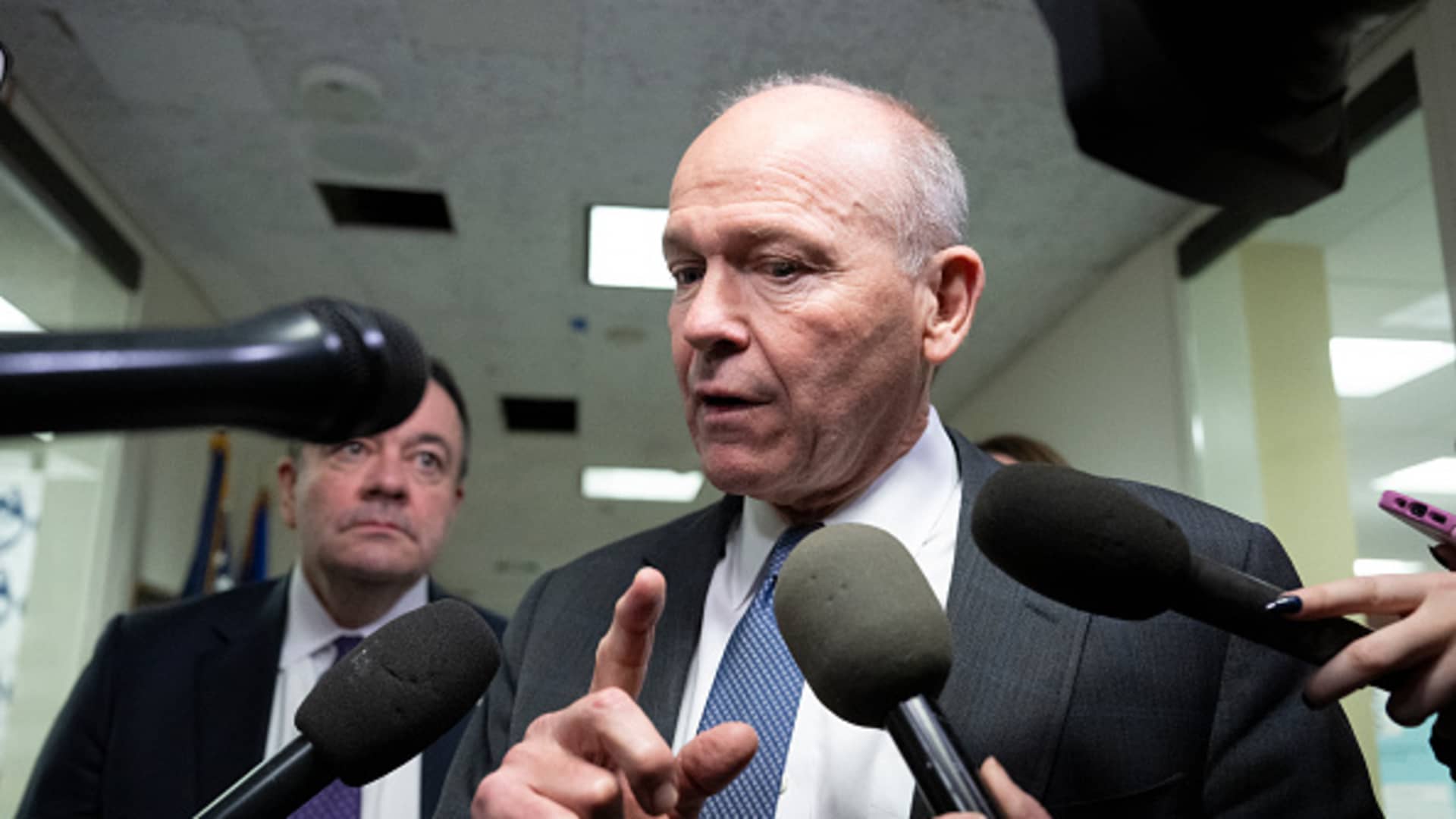The Supreme Court agreed Monday to review a Tennessee law that bans certain medical treatments for transgender minors. This is the first time the justices have ruled on the constitutionality of such statewide bans.
The move could have broad implications for about 25 states that have taken similar measures. Republican-led state legislatures have pushed in recent years to restrict the rights of transgender people, with laws that focus on gender reassignment care and regulate other areas of life, including which bathrooms students and others can use are allowed to use and which sports teams they are allowed to play on.
The case United States v. Skrmetti will be heard during the court’s next term, which typically begins on the first Monday in October. However, no date has yet been set for the oral hearing. The justices had been debating whether to hear two challenges to transitional care at their weekly private conference, including the Tennessee appeal and one that focused on a Kentucky law. But they had repeatedly postponed making a decision, suggesting there might have been a debate about whether such a decision should be made.
The court’s decision to take up the case signals the willingness of at least some justices to take on another polarizing social issue, even as they have yet to rule on some of the biggest cases of this term, including emergency abortions and disinformation on social media and the Scope of the president’s power.
The Biden administration and a number of legal advocacy groups representing transgender youth had asked the court to intervene after a federal appeals court upheld the ban. In Tennessee, the law bans three types of transgender medical care for minors: puberty blockers, cross-sex hormones and gender reassignment surgery.
The government has argued that the law violates the Equal Protection Clause of the 14th Amendment because it “phrases this prohibition in explicitly gender-specific terms.” Attorney General Elizabeth B. Prelogar pointed out what she saw as a disparity in the state’s approach in the government’s petition to the court, saying that while Tennessee bans medical care for transgender people, it leaves “the same treatments completely unrestricted if.” they are prescribed”. some other purpose.”
In his brief, Tennessee Attorney General Jonathan Skrmetti argued that the number of minors being diagnosed and receiving medical treatment for gender dysphoria has risen sharply in recent years, prompting Tennessee and other states to respond. The laws, he said, were enacted “to ensure that potentially irreversible sex reassignment procedures with uncertain benefits are not performed on minors who may not be able to fully understand their lifelong consequences and risks.”
He warned that such treatments “carry serious and potentially irreversible side effects, including infertility, reduced bone density, sexual dysfunction, cardiovascular disease and cancer.”
The Biden administration strongly opposed that notion, saying such treatment was rare and pointing to guidelines that medical interventions for transgender youth occur only in “appropriate cases” and after a thorough assessment to determine their eligibility.
The number of teenagers identifying as transgender has risen rapidly in recent years, but data suggests only a small number are receiving puberty blockers or hormones. Operations on teenagers are extremely rare. According to the Williams Institute at UCLA, about 100,000 transgender minors live in states that have passed laws restricting gender-affirming care.
Many American medical groups have endorsed gender-affirming treatments in adolescents as evidence-based and necessary.
Lambda Legal, one of the groups challenging the Tennessee ban, expressed cautious optimism that the court would hear the case.
“This court has historically rejected efforts to uphold discriminatory laws, and without similar action here, these punitive, categorical bans on the provision of gender-affirming care will continue to have a devastating impact on the lives of transgender youth and their families,” said Tara Borelli, senior Group lawyer.
Mr. Skrmetti, who is defending the ban, said in a statement that he looked forward to arguing it in court.
The case, he added, will “provide much-needed clarity on whether the Constitution provides specific protections for gender identity.”
Until Monday, the current court had largely refrained from addressing transgender rights.
This spring, justices temporarily allowed Idaho to enforce a state ban that restricted medical treatment for transgender youth. The law, passed by the state’s Republican-controlled Legislature, makes it a felony for doctors to provide transgender medical care, including hormone treatments, to minors.
The justices did not rule on the substance of the case, but the decision, issued in response to an emergency appeal, was largely ideologically divided, with the court’s liberals dissenting.
In 2023, justices upheld a federal appeals court ruling that an 11-year-old transgender girl in West Virginia, Becky Pepper-Jackson, can compete on her middle school’s girls cross country and track teams while her case is appealed moved forward.
In June 2020, the court ruled that a landmark civil rights law protected transgender workers from discrimination, handing an unexpected victory to the movement for LGBTQ equality. But the court has since shifted to the right, with the appointment of Justice Amy Coney Barrett to succeed Justice Ruth Bader Ginsburg following her death in September 2020.
Transgender youth, their families and doctors say medical care can ease gender-specific issues called dysphoria that many transgender minors suffer from. Several European countries have recently restricted hormone treatments for children, but none have imposed an outright ban.
The federal courts are divided over such laws aimed at blocking transitional care. They allow the measures in some states and ban them in others, increasing pressure on the Supreme Court to intervene.
The Tennessee case dates back to November 2022, when a group of lawmakers introduced a bill that would ban transgender care of minors. Members of the Legislature’s Republican supermajority had championed it, calling it SB 1 to underscore its importance to their agenda.
The bill included language that Tennessee has a “compelling interest in encouraging minors to appreciate their gender, particularly during puberty,” and that procedures “that could encourage minors to despise their gender” would be prohibited.
Violations of the law are punishable by a fine of $25,000 for each prohibited prescription or treatment, professional discipline, and potential civil liability.
A group of legal advocacy organizations, including the American Civil Liberties Union, the ACLU of Tennessee and Lambda Legal, sued the state of Tennessee to block the new law.
The groups brought the lawsuit on behalf of Samantha and Brian Williams, a Nashville couple, and their adolescent child, who is transgender, along with two other families and a Memphis-based doctor, Susan N. Lacy.
The child, LW, is a 15-year-old transgender girl whose dysphoria left her feeling “trapped in the wrong body” and “drowning,” the government statement said. The attorneys wrote that in 2021, “after comprehensive assessments and considerations of risks and benefits,” LW began treatment at Vanderbilt University Medical Center, first with puberty blockers and later with estrogen.
LW said she was “afraid” of the permanent changes that would happen to her if she were “deprived of this care,” the government statement said.
Another plaintiff, identified in the brief as Ryan Roe, a 15-year-old transgender boy, said in court papers that after two years of psychotherapy and extensive counseling, he began hormone therapy at Vanderbilt and that “gender-affirming health care saved my life .” and the thought of losing it scares me.”
The third, identified as John Doe, is a 12-year-old transgender boy who began taking puberty-delaying drugs in 2021 after years of psychotherapy and endocrine monitoring.
After a federal district judge temporarily blocked the ban, a divided three-judge panel of the U.S. Court of Appeals for the Sixth Circuit in Cincinnati quickly reversed the lower court’s decision and reinstated the ban in early July 2023. It was the first time that a federal court had allowed such a law banning transitional care to be fully enforced in the country.
In November 2023, the federal government filed a petition asking the Supreme Court to review the case.
Amy Harmon contributed reporting.
Source link
2024-06-24 20:30:34
www.nytimes.com














